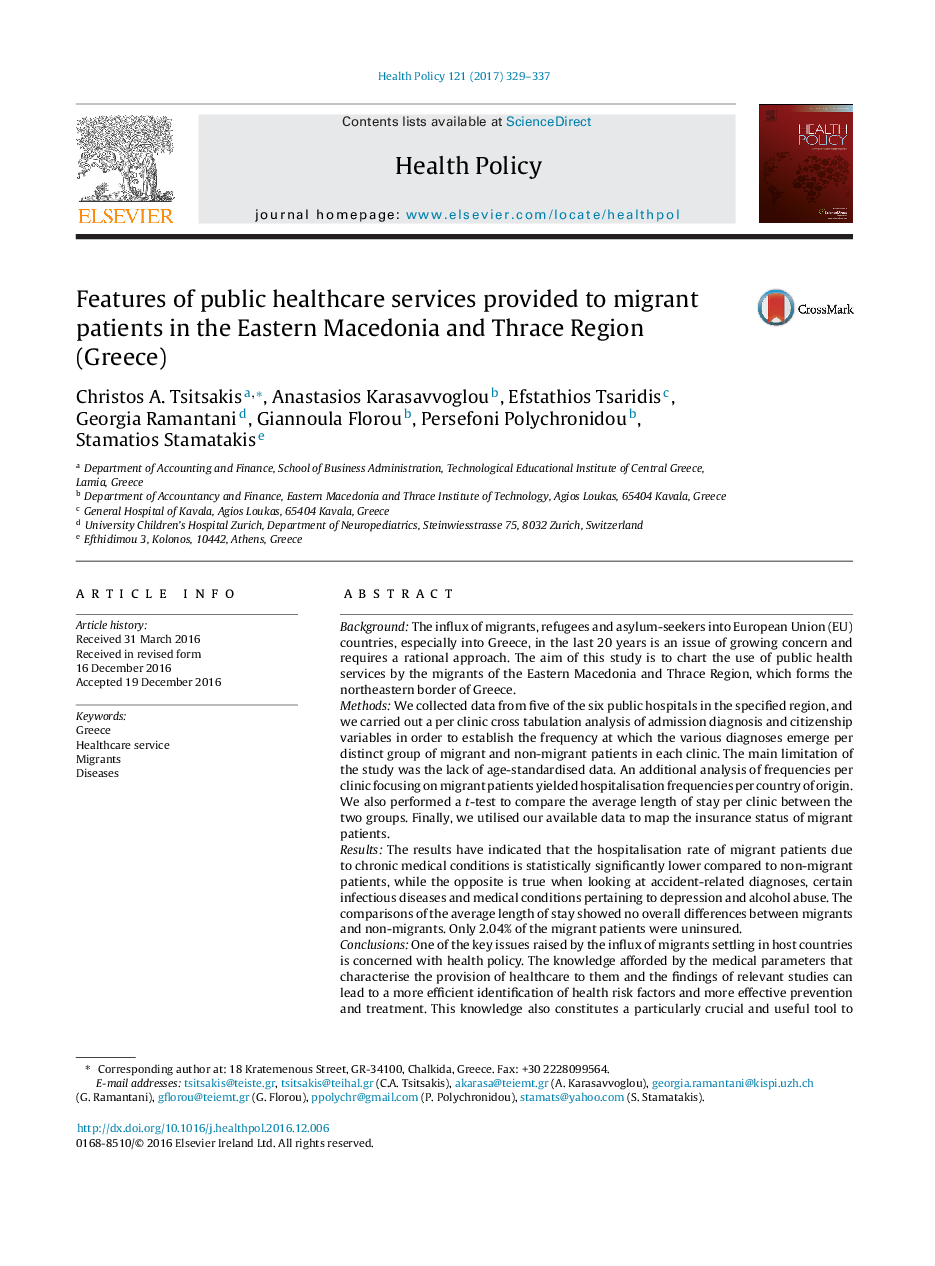| کد مقاله | کد نشریه | سال انتشار | مقاله انگلیسی | نسخه تمام متن |
|---|---|---|---|---|
| 5723490 | 1411452 | 2017 | 9 صفحه PDF | دانلود رایگان |
- Need of proper hospital information systems, monitoring the epidemiological characteristics of migrant inpatients.
- Need of preventive exams for detection of health problems, among incoming migrants.
- Our research confirmed the “healthy migrant effect”.
BackgroundThe influx of migrants, refugees and asylum-seekers into European Union (EU) countries, especially into Greece, in the last 20 years is an issue of growing concern and requires a rational approach. The aim of this study is to chart the use of public health services by the migrants of the Eastern Macedonia and Thrace Region, which forms the northeastern border of Greece.MethodsWe collected data from five of the six public hospitals in the specified region, and we carried out a per clinic cross tabulation analysis of admission diagnosis and citizenship variables in order to establish the frequency at which the various diagnoses emerge per distinct group of migrant and non-migrant patients in each clinic. The main limitation of the study was the lack of age-standardised data. An additional analysis of frequencies per clinic focusing on migrant patients yielded hospitalisation frequencies per country of origin. We also performed a t-test to compare the average length of stay per clinic between the two groups. Finally, we utilised our available data to map the insurance status of migrant patients.ResultsThe results have indicated that the hospitalisation rate of migrant patients due to chronic medical conditions is statistically significantly lower compared to non-migrant patients, while the opposite is true when looking at accident-related diagnoses, certain infectious diseases and medical conditions pertaining to depression and alcohol abuse. The comparisons of the average length of stay showed no overall differences between migrants and non-migrants. Only 2.04% of the migrant patients were uninsured.ConclusionsOne of the key issues raised by the influx of migrants settling in host countries is concerned with health policy. The knowledge afforded by the medical parameters that characterise the provision of healthcare to them and the findings of relevant studies can lead to a more efficient identification of health risk factors and more effective prevention and treatment. This knowledge also constitutes a particularly crucial and useful tool to help authorities shape their healthcare policies and modify national health systems, which are currently based on the size and characteristics of indigenous populations, to take into account the different conditions with regard to both the number of patients treated and the epidemiological characteristics of the migrants. A greater appreciation of the particular current and potential roles of non-governmental organisations (NGOs) can help to provide appropriate healthcare services to migrants, refugees and asylum-seekers, especially when these groups are excluded from the public health system.
Journal: Health Policy - Volume 121, Issue 3, March 2017, Pages 329-337
